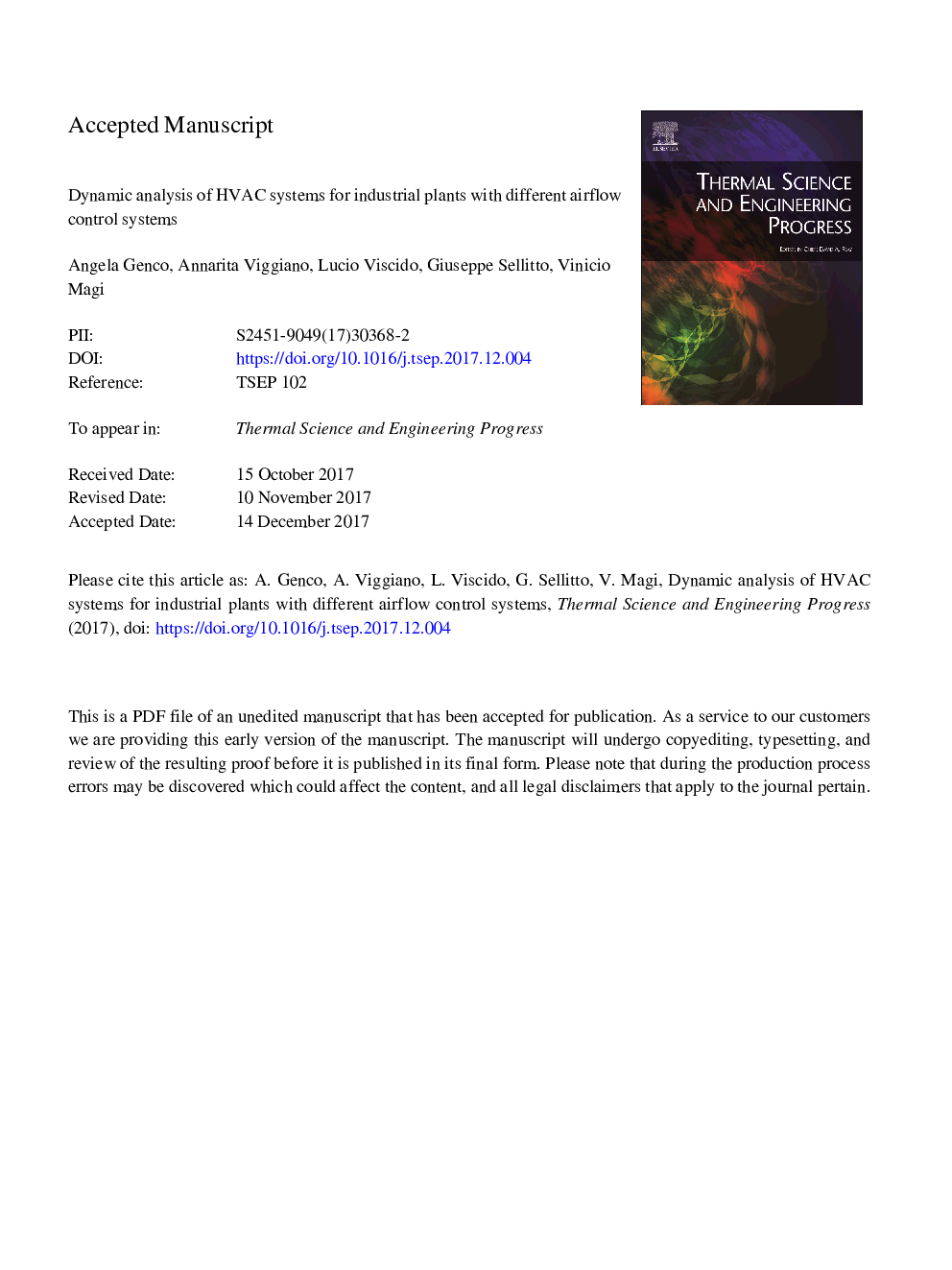| Article ID | Journal | Published Year | Pages | File Type |
|---|---|---|---|---|
| 8918694 | Thermal Science and Engineering Progress | 2018 | 21 Pages |
Abstract
The aim of the present work is the analysis and optimization of HVAC control systems for environments under controlled thermo-hygrometric conditions in order to minimize energy consumption costs. A predictive mathematical model for the analysis of such systems has been validated in order to study the thermodynamics of conditioning processes for controlled microclimates. The model provides the hourly energy performance of an HVAC system by considering outside weather conditions. Based on such a simulation model, two different control systems have been implemented. Specifically, the first system is based on an adjustable airflow rate, whereas the second one on an adjustable inlet temperature of the controlled environment with a user-defined airflow rate profile. Both models estimate the energy consumption in terms of heating/cooling, humidification/dehumidification energy, reheat (when such process occurs) and electrical power demand due to fans and extractors. The results obtained with the two models have been compared under several climatic and set-point (comfort) conditions, thus assessing that the second control system with a minimum value of the airflow rate is the most efficient choice in terms of hot water and electrical power consumption. On the other hand, the adjustable airflow rate control system guarantees the comfort conditions for the whole microclimate.
Related Topics
Physical Sciences and Engineering
Energy
Energy Engineering and Power Technology
Authors
Angela Genco, Annarita Viggiano, Lucio Viscido, Giuseppe Sellitto, Vinicio Magi,
